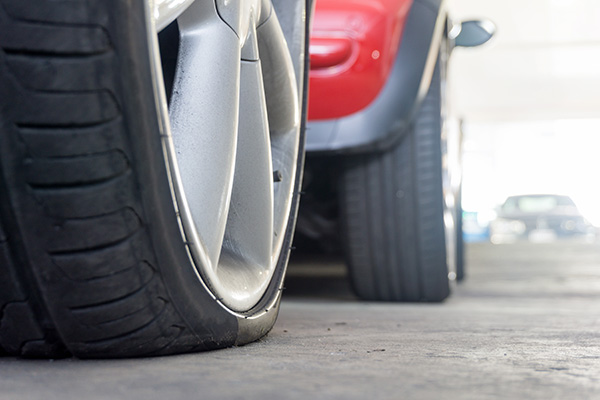
If your drive is getting louder than usual—buzzing, humming, or a low rumble coming from below—it’s easy to assume your tires are to blame. And in many cases, they are. But road noise isn’t always about tire age or tread wear. Sometimes, it’s a sign that something deeper in your vehicle needs attention.
So, how do you tell the difference between normal tire noise and something more serious? Here’s what to listen for, what it might mean, and when it’s time to do more than just rotate or replace your tires.
Tires Are Often the First Suspect But Not Always the Culprit
It’s true—many road noise issues come down to tires. Worn tread, uneven wear, aggressive all-terrain patterns, or cheap compound materials can all create extra noise. Some tires are just naturally louder, especially if they’ve aged past their prime or developed cupping (that uneven, patchy wear that causes a rhythmic hum).
If the noise gets worse at highway speeds but disappears on smooth pavement, your tires could still be to blame. But if you’ve already rotated or replaced them and the sound hasn’t changed—or if it’s getting worse—there’s a good chance the problem runs deeper.
Wheel Bearings
If you’ve ever noticed a low growl or hum that gets louder with speed but doesn’t change when the road surface does, it could be your wheel bearings. These sealed components sit at the center of your wheel hub and allow the wheels to spin smoothly. As they wear, they can produce a noise that’s often mistaken for tire issues.
Here’s one way to test it: If the sound gets louder when turning one direction and quieter when turning the other, there’s a good chance a wheel bearing is going bad on one side.
Letting it go too long can lead to steering issues, uneven tire wear, or worse—failure while driving. This is one problem that’s better caught early.
Suspension Issues
Loose or worn suspension components can also amplify road noise. If your shocks, struts, or bushings are worn out, they might not be absorbing bumps and vibrations the way they should. That can make even normal road texture sound much louder than usual inside the cabin.
If you’ve noticed your car feels bouncy over bumps or leans more than usual when turning, your suspension could be part of the issue. And when those parts start to fail, they can wear your tires unevenly—bringing you right back to square one.
CV Joints and Axles
If your noise changes when accelerating or turning, don’t rule out your CV joints or axle shafts. These components transfer power from the transmission to the wheels while allowing for movement. When the protective boots tear and let in dirt or moisture, the joints start to wear—and they let you know with audible clicks, pops, or groans.
You might notice the noise more when making tight turns or during hard acceleration. Ignoring it could lead to axle failure, which isn’t just expensive—it can leave you stranded.
Brake System Noises
Brakes can create their own kind of noise, too. Squealing often means the pads are worn, but grinding, groaning, or rhythmic thuds could suggest deeper problems like warped rotors, seized calipers, or loose hardware. And because the brake system is located right next to the wheels, those sounds can echo through the chassis and sound like tire or bearing noise.
If the sound changes when you apply the brakes—or if you feel vibration in the pedal—your brake system should be inspected right away.
Schedule an Inspection
You don’t have to wait until the noise becomes unbearable. In fact, the earlier you catch it, the better your chances of avoiding more serious damage. If you’ve recently changed tires and still notice road noise—or if you hear grinding, humming, or clunking that’s new or getting worse—bring your car in for an inspection.
It might be something simple. But even if it’s not, getting a proper diagnosis can save you from chasing the wrong problem (and spending money on repairs you didn’t need).
Import Auto Specialists – Noise Diagnosis and Repair in San Diego, CA
At Import Auto Specialists in San Diego, CA, we know how frustrating unexplained road noise can be. Whether it’s tires, bearings, suspension, or something else entirely, our team can pinpoint the source and recommend the right fix—no guesswork, no wasted time. If your ride sounds louder than it should, schedule a visit today and let us track down the cause.